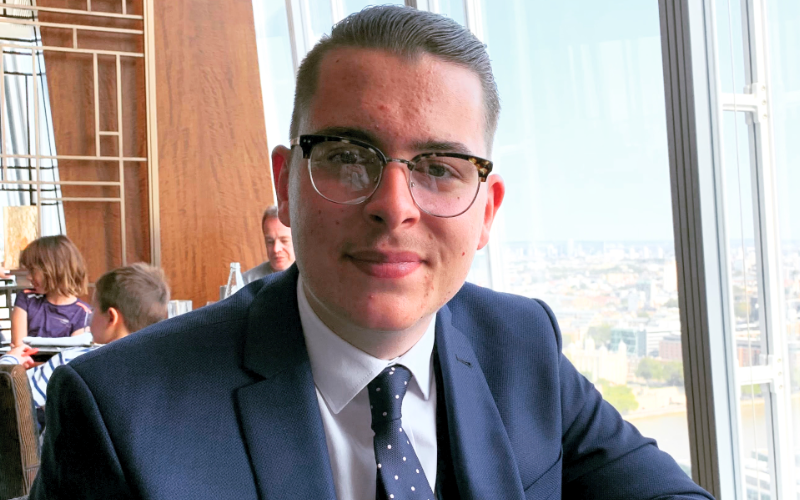Now a reporter for Newsquest Cambridgeshire, Oliver Murphy shares how his time at the School of Journalism helped him get to where he is now.
What is your job?
I am a reporter for Newsquest Cambridgeshire titles. That covers five titles, two of which are in print and three are digital. We have quite a broad portfolio of titles to cover.
Do you have an area of journalism you work most on?
Investigation really. I focus on human interest stories and data led-investigations for all five titles.
How do you find your role?
It is a fine balance between fulfilment and incredibly intense times. You just don’t know what you’re going to get from one day to the next. You turn on the laptop and one day you’ll be getting a story about a new business that is open or planning application and then the next day you can be dealing with a double murder and unexpected deaths.
I am really enjoying it, I have been in the role for nearly a year now.
What does a day in your life look like?
I’m still so surprised by how varied the days can be! For the last two months I have been working on a big story focussing on dangerous housing conditions in Cambridgeshire.
On a typical day, I am juggling interviews, writing them up, having more off the record chats and replying to hundreds of emails.
It looks so different from one day to the next though.
Great to make the front page of this week’s @huntspost with the terrifying tale of a Huntingdonshire family whose lives were turned upside down after a car crashed head-on into their living room. pic.twitter.com/oEVSN1jMj8
— Oliver Murphy (@theolivermurphy) October 16, 2024
What is your favourite part of your role?
Ever since we posted our story [about bad housing conditions], virtually every single person we have spoken to has been contacted by the housing association and are finally having repairs made. For me, the best part is seeing that my work has an impact.
The longer I have been in this job, the more fascinating I find it. Just covering Cambridgeshire, a small county in the UK, there are so many great stories, that are actually of national significance.
What is the story you are most proud of that you’ve done so far?
My investigation into unsafe housing and articulating the voices of so many residents that were living in really bad conditions. I saw one Facebook post about someone living with damp and mould and thought it was interesting. They worded it in a way that made it sound like it was a recurring theme in the area.
I put up a Facebook post asking if anyone would talk to me about living with damp and mould and I got hundreds of comments. I wasn’t expecting it, my inbox was flooded. Getting all of their stories written down in print and online, holding the housing association to account, getting the MP involved and getting it picked up by ITV was a real achievement!
Pleased to see @itvanglia pick up @huntspost’s investigation into the St Neots residents forced to live in damp and mould-ridden properties managed by one of the UK’s largest housing associations. Great reporting by @KatieRidleyTV https://t.co/NNEc45H1Hk pic.twitter.com/VRqhRuxUdn
— Oliver Murphy (@theolivermurphy) February 2, 2025
What was the biggest lesson you learnt at the School of Journalism?
Perseverance! I really found it so important – just trying to get interviews with people and trying to win over people who don’t necessarily feel comfortable being interviewed for a piece. If I had given up at the first hurdle, quite a lot of the stories that I have published wouldn’t have been.
What piece of advice would you give someone considering a career in journalism?
You need perseverance, not just in finding stories but in the job hunt. I feel like I have sort of gone back to front. When I was at the School of Journalism, I was doing a lot of freelancing nationally for Metro and I took that and thought I was going to graduate and go straight into a national. That didn’t happen because it is a competitive industry. I have found myself going from national news to local news just to get my foot on the ladder.
I’m glad I stuck with it because I had one response [to a job application] from my now boss and I haven’t looked back.
Also start writing early! I am so glad I did start writing from an early stage because it gave me a background to demonstrate that I know what I am doing and that I have experience.
The School of Journalism graduates go into the industry prepared for life as a journalist. Read about Mariana’s first job in journalism here.

